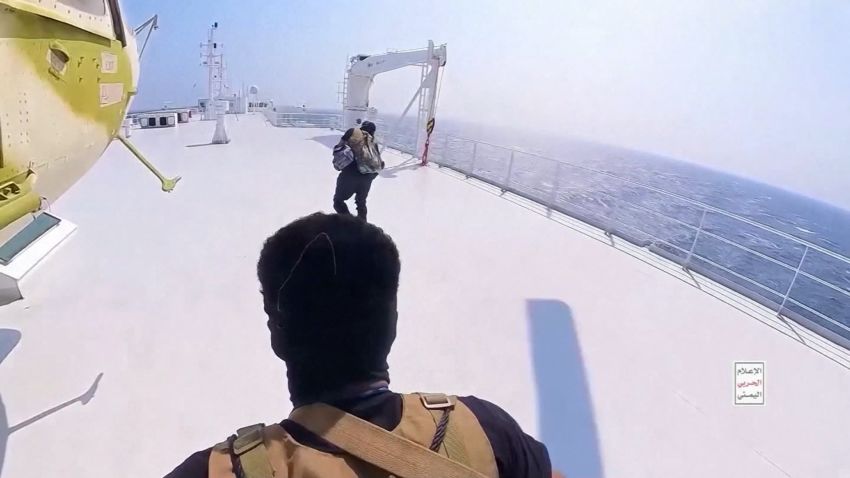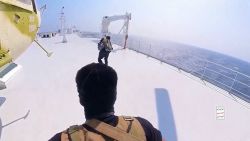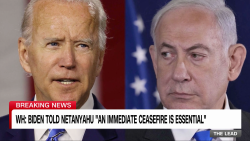Attacks on commercial ships in the Red Sea have escalated to a level not seen in decades, leaving the United States and its allies scrambling to protect shipping in a key corridor for the global economy.
Houthi rebels have launched at least 100 attacks against 12 different commercial and merchant vessels in the Red Sea over the last month, a “very significant breadth of attacks” not seen in at least “two generations,” a senior US military official said Tuesday.
The official described the attacks, which the Iran-backed Houthis have launched using ballistic missiles and drones, as a “large change in the security environment than even what it was two months ago.”
The Red Sea is home to one of the most important maritime trade routes in the world, and the affects of the attacks have had far-reaching reverberations, with at least 44 countries having connections to vessels attacked by the Houthis, and wider international trade being disrupted due to the attacks.
The attacks have escalated since the beginning of the war between Israel and Hamas, sparked by the October 7 terrorist attack that killed about 1,200 Israelis. As Israel ramped up its retaliation for the attack, the Houthis began targeting ships that it accused of in some way support Israel’s war effort though multiple companies that have been targeted have said they have no connection with Israel or the war.
Some of the world’s biggest companies, including oil giant BP and shipping company Maersk, announced they were suspending their operations in the Red Sea because of the continued attacks on the vessels in recent weeks. Oil and gas prices rose sharply after BP’s announcement.
The strikes prompted Defense Secretary Lloyd Austin to announce the formation of a coalition of at least 10 countries to focus on security in the Red Sea, saying the attacks “threaten the free flow of commerce and endanger innocent mariners.”
The coalition, part of Operation Prosperity Guardians, involves member ships being available near the Red Sea to respond to attacks.
The UK, Bahrain, Canada, France, Italy, the Netherlands, Norway, Seychelles and Spain have signed up so far, Austin said on Monday. The US sent invitations to 39 countries to be part of the operation, and expects more will sign up in the coming days.
The US did not invite China to be part of the coalition, despite China maintaining a presence in the area, the official said.
“We will be sailing alongside the highway, so to speak,” the official said. “A key point is that this is not necessarily an escort mission.” If a closer escort is required at any given moment, however, then the naval forces in the region will make that assessment on a case-by-case basis.
The official said he is not sure how the Houthis have been picking and choosing their targets, but acknowledged that there are Iranian forces operating in the Red Sea when asked directly whether Iran is helping the Houthis select vessels to attack. The US’ assessment, however, is that the Houthi attacks have been “very indiscriminate,” the official said.
The Houthis, one side of Yemen’s brutal, decade-long civil war, have said their attacks are retribution for Israel’s military campaign against Gaza. Not all ships targeted by the group are believed to have direct connections to Israel, however.
The Houthis have made incremental updates to their weaponry and firepower, and have targeted commercial ships using drones and anti-ship missiles.
A Houthi spokesperson told Al Jazeera on Monday that the group would confront any US-led coalition in the Red Sea.

















